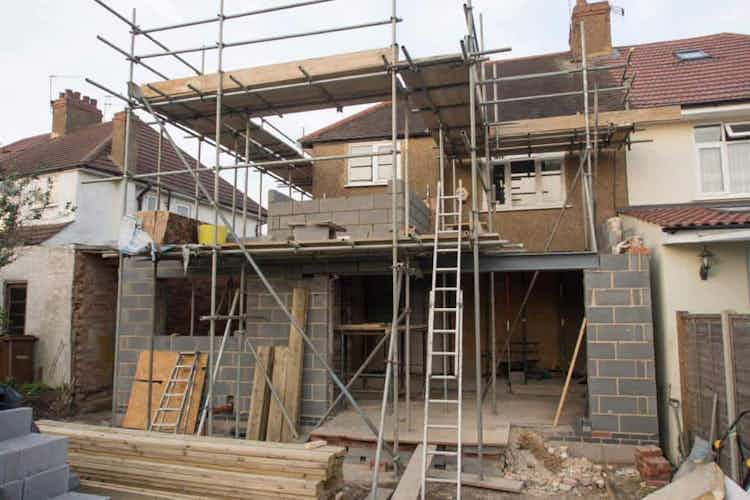After spending much of our lives aiming for a bigger, more beautiful house, the idea of downsizing begins to crop up as we get older. Downsizing, or moving to a smaller property, comes with lots of financial benefits along with implications you’ll want to think through.
We’re going to explore the idea of downsizing your home later in life and answer some of your key questions and concerns. We want you to be comfortable in your downsizing decision, so we’ll answer:
- How do I go about downsizing my home?
- When should I start looking at downsizing?
- What are the good and bad points of downsizing?
- What are my alternatives to downsizing?
How Do I Deal with Downsizing My House?
Downsizing to a smaller house is pretty common. As we get older, our lives and families change and our homes can, too. Some reasons you might be thinking of downsizing include:
- An empty nest, the kids have grown up, and you don't need four bedrooms and a big garden any more.
- A change in circumstances such as a divorce or your partner dying.
- Wanting to cash in the equity you’ve built up in your house to spend or pay down debt.
- Reducing expenses such as council tax, fuel, and maintenance costs.
Once you’ve decided to downsize, you need to ask yourself some questions, like where do you want to live? Do you want to move closer to your family? Into the town centre? Out into the countryside?
Think about the type of home you want to live in, too. This is your chance to move into an ultramodern apartment, a bungalow, or a chocolate-box cottage.
If you’re over 55-years-old already, you can also look at sheltered accommodation. You get to live independently in a community of people around your age, have a warden on hand if you take a fall, and take advantage of community spaces and activities.
Next, you need to get your house on the market and start to explore your options for a potential new home. It’s possibly been many years since you’ve dealt with agents, solicitors, and surveyors, so take your time when going through all the paperwork and contracts.
What’s the Best Age to Downsize My House?
Like with so much retirement planning, there’s no hard and fast rule to when you should downsize. It makes good sense to downsize once your mortgage is paid off, or nearly paid off, so you can have money left over after you’ve bought your new place.
If you’ve got some medical conditions that you manage, you might want to look at moving before they become more of a challenge. Living in a bungalow or an accessible home can help to improve your quality of life.
Moving home can be stressful; it's said to be one of the most stressful things we can ever do. Downsize when you're a little younger, and you'll find things much more manageable, plus you can still help with moving some boxes!
What Are the Advantages and Disadvantages of Downsizing?
You’ll probably have friends who rave about how amazing their life is now they’ve downsized their home. However, it’s not going to be the best solution for everyone. Let’s look at some of the positives and negatives.
Advantages of Downsizing Your Home
- You cash in on the market increase in your house price. When you sell, your house will likely be worth more than you bought it for.
- There should be money left over after you buy your new house. You can look to pass this to your children, invest in an annuity to get an income or go on your dream holiday.
- Outgoings should decrease, with council tax usually lower on smaller homes, depending on where you move, plus you’ll use less gas and electric.
- You can choose a home suited to your changing needs; closer to public transport if you give up driving or a one-storey to save your bad hip on the stairs.
Disadvantages of Downsizing Your Home
- You’ll need to downsize the contents of your home too – get rid of furniture, reduce what you keep in your workshop, own fewer clothes – letting go is hard.
- Finding the right property in the right area can be a challenge, and you might not end up with a lot of cash left over or feeling forced to compromise.
- A lifetime of memories get left behind, which can be hard not only for you but for your friends and family, too.
What Are the Alternatives to Downsizing?
Lots of people downsize so they can release some of the money that’s tied up in the value of their house. Selling up isn’t the only way to do this. You can look at equity release options to get money without moving.
There are two options for equity release. You can take a lifetime mortgage, where you borrow money based on the value of your home, choosing whether to pay back interest or not. The lender gets their money back when you move into a care setting or when you die. Alternatively, you can do a home reversion where you sell your house to a company for around 20-60% of its value. You get to live in it until you die and the company takes ownership at that point.
Considering downsizing due to medical issues? Bad knees or a dickie ticker can make stairs increasingly challenging to tackle. Rather than selling the home you love; you can make adaptations such as adding a stairlift or installing a downstairs bathroom.
The Take Home
Downsizing can give you a whole new lease of life, bring you closer to your family or nature, or even just give you a home you’re more comfortable in. You should get some financial benefits, too, like a little money left over and lower monthly outgoings.
Do think the decision through – it can be mentally taxing to sell the home you’ve lived so much life in. Depending on your needs, there may be other options such as equity release or adapting your current home that will accomplish your goals.








